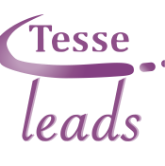 Governance is not just about regulation, policies and procedures: it has a human face too. Board agendas are often cramped, meaning that more personal, sometimes difficult and uncomfortable matters do not get discussed. Sometimes there is a sense of uneasy compromise. But creating an environment where trustees can discuss matters of real personal concern can add significantly to the effectiveness of an organisation.
Governance is not just about regulation, policies and procedures: it has a human face too. Board agendas are often cramped, meaning that more personal, sometimes difficult and uncomfortable matters do not get discussed. Sometimes there is a sense of uneasy compromise. But creating an environment where trustees can discuss matters of real personal concern can add significantly to the effectiveness of an organisation.
Last year, a successful service-delivering charity appointed a new chair. The first thing she did was to initiate a board assessment, which recognised that the board needed to clarify its goals in relation to new key performance indicators for the organisation. The next few months uncovered some uncomfortable undercurrents within the board, with some members feeling there was an inner circle that made all the decisions. The chair encouraged the trustees to voice their concerns, particularly about the challenges thrown up by the rapid growth of the charity since taking on more public service contracts.
A few trustees would not play, and left. But the majority gradually became more engaged. They were given specific responsibilities as part of the plan to meet the new strategic agenda, and time was allocated to developing fresh ideas. Trustees and senior management began having the difficult conversations that two years before would have been unthinkable, and this candour led to better decision-making and an end to the previous blame culture and power struggles.
The board now has the confidence to focus on what really matters, to say what it means, to encourage different points of view and to work as a team.
“This has really changed the way we do business and the way we treat each other,” says the chair. “More importantly, it has enhanced our effectiveness as a board to lead this organisation.”
Surely there is a lesson in this for every charity.
